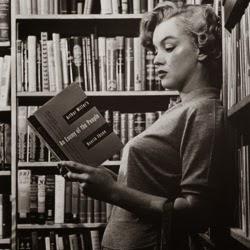Throughout
the Muslim world commemorating the death of Khaddija bint Khwalid is a day of
reflection marked by recalling her greatness. She was the first wife of
Mohammad, the first woman to convert to Islam and regarded by Muslims as ‘the
mother of the believers i.e. Muslims.’
In the annals of history it is recorded that
she was a wealthy woman who also belonged to the respected tribe of Quraysh. Khadija
had been previously married three times and had older children when she met
Muhammad, whom she hired to travel to Syria
No doubt Khadija was a woman of remarkable intelligence. Her
mature understanding of worldly affairs made her astute and wise. She saw in
Muhammad a man willing to aid and abet anyone who gave the opportunity to
prove himself worthy of accomplishing honest dealings and transactions in trade
and commerce. We learn that her maturity was equalled by her consideration
because of the support she offered to Muhammad’s prophetic mission. Khadija’s
generosity left a lasting impression on Muhammad who grieved for a long time after
her death. Because of the affection he maintained for Khadija, his wife
Ayesha remained jealous of her.
Much that can be praised about Khadija, however it fails to
make sense that so many young Muslim girls prefer her to be a role model.
Khadija’s rare qualities made her a perfect companion for a man who was
destined to become a prophet. She narrated dreams which led to the
interpretations that she was to marry a prophet which tells us that she was
bestowed with a strong spiritual awareness as well. Some of us are born
naturally gifted and talented; however a gifted person’s rare attributes hardly
assist others to better themselves.
It is narrated that Muhammad said there are four foremost
ladies of the universe, Khadijah bint Khuwaylid, his daughter Fatimah bint
Muhammad, Maryam bint Imran, the mother of Prophet Issa and Asia bin Muzahim
(the wife of the Pharoah.) Despite my best efforts I can never succeed to be
like any of these women because I don’t possess their attributes, skills or place
and position in society. However I can try my best to live by accomplishing some
good in the face of adversities like Helen Keller, I can hope to learn from the
legacy of Marie Curie whose discoveries benefits all of us, I can try and
overcome my fears of altitudes and severe weather conditions like Junko Tabei and
aim to reach the summit of Mount Everest.
Blind veneration of Khadija, Ayesha and Fatima strikes to be
an attitude which only highlights Muhammad’s status in Islam. Surely young
Muslim girls can do better than worship for the sake of upholding Islam’s
status.




